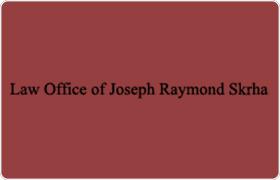Tanana Felony Lawyer, Alaska
Sponsored Law Firm
-
 x
x

Click For More Info:
-
Law Office of Joseph Raymond Skrha
110 N Willow St Suite 137 Kenai, AK 99611» view mapCriminal Defense Law Vigorously Protecting Your Rights
You need an attorney with criminal defense knowledge who will vigorously protect your rights and interests.
800-950-6960
Warning! No lawyers found in this specified area.
Not enough matches for Tanana Felony lawyer.
Below are all Tanana lawyers.
 Joseph Skrha Kenai, AK
Joseph Skrha Kenai, AK Practice AreasExpertise
Practice AreasExpertise
